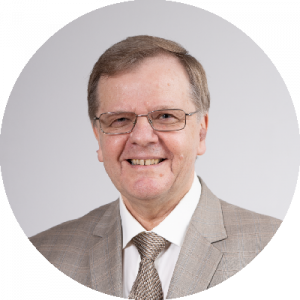Home > The National Transport Development Programme (1996-2010)
Контролеры:
,

Academic degree and current position in TSI: Professor, Dr.sc.ing. Dr.hab.sc.ing, leading researcher of the Engineering Faculty, Director of PhD Programme “Telematics and Logistics”.
Previous Experience: Founder and President of Transport and Telecommunication Institute for over 15 years, Vice-rector for Research and Development Affairs for more than 10 years
Membership: Member of the Joint OECD/ITF Transport Research Committee (OECD – Organization for Economic Co-operation and Development, ITF – International Transport Forum), Member of Institute of Electrical and Electronics Engineers (IEEE), Corresponding Member of Latvian Academy of Science, President of Latvian Transport Development and Education Association, President of Latvian Operations Research Society, Editor-in-Chief of the Journal «Transport and Telecommunication», Member of the board of the Journals “Transport”, “Technological and Economic Development”, “Journal of Aviation Technology and Engineering” etc.
Academic experience: Author of more than 600 academic and research publications, author of 68 patents. Expert of the Latvian Council of Science in Civil and Transport Engineering, Chairman of promotion council for PhD degree in Civil and Transport Engineering, Chairman of Professor Council in Telematics and Logistics.
Teaching at post- and graduate level: 45 years of pedagogical experience in university; courses: Research Methodology (PhD programme); New Trends of Telematics and Logistics Development (PhD programme), Research Methodology (MSc programme), Theory of Systems and System Analysis (MSc programme), Transport Policy (MSc programme), Intelligent Transport Systems (MSc programme), Reliability Engineering (BSc programme) etc.
Participation in projects: has participated in 37 international projects (in 26 projects as national coordinator of the projects) and 26 Latvian research projects and programs (in 23 as head of the projects) within the frame of COST Activities, Horizon 2020, Framework Programs, INTERREG etc.
Research Interests: Transport Telematics and Logistics, Smart Cities, Analysis and Modelling of Transport Systems, Intelligent Transport Systems, Reliability of Electronics Systems, Internet of Things, Cyber-Physical Systems, Information Technology Applications, Electronics and Telecommunication, Decision Support Systems, Avionics, Air Traffic Control Systems and others.
Supervised Doctoral, Master and Bachelor Theses: Supervisor of 9 PhD theses and more than 200 Master and Bachelor theses.
Awards: 2 Gold and 5 Silver Medals of International Research and Innovation Exhibition of Innovators (1985-1990); Honorary title “Latvian Honored Inventor”, Latvian Parliament (1989); Award for Innovative Excellence in Teaching, Learning and Technology, USA (1998); Award and memorial medal for outstanding research in computer science and informatics, Latvian Academy of Sciences (2001); Award and memorial medal for outstanding performance of research in air navigation, communication and radar technology, Latvian Academy of Sciences (2002); Certificate of Recognition as a significant contribution to the research and educational work in the transport, logistics and information technology, as well as on the international success in science, Cabinet of Ministers of the Republic of Latvia (2014); Certificate of Honor of the Latvian Academy of Sciences for research in the field of transport and logistics (2019).
The National Transport Development Programme is a document of plan character that constitutes the activities (actions, tasks, types of activities) of economic, organizational, institutional nature and other-type of programmes falling within one system. It is worked out for 15 years period (years 1996-2000 and 2001-2010).
In order to solve the problems with regard to development of separate transport sectors the sector (roads, road transport, sea transport, railways transport, air transport, road safety) development state programmes have already been worked out. At these programmes the problems of complex nature were touched upon vaguely or completely ignored. For instance, transport statistics, transport system integration, etc.
The key goal of the National Transport Development Programme is to ensure the planned development of the efficient transport system in order to satisfy the constantly growing demand of the national economy and people for quantitative and qualitative transport that demonstrates safety, firm guarantees and reasonable costs.
The National Transport Development Programme consists of the following Sub-programmes: